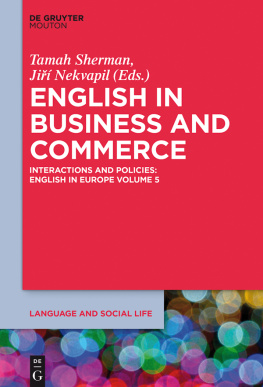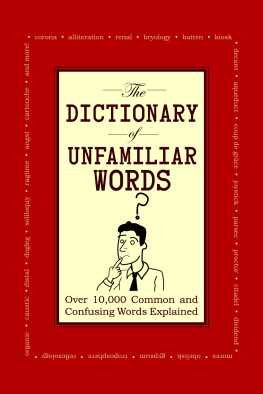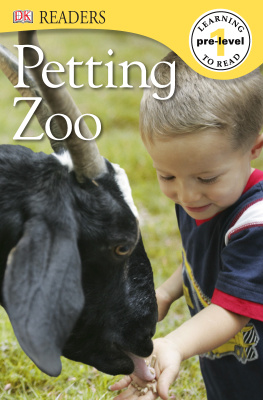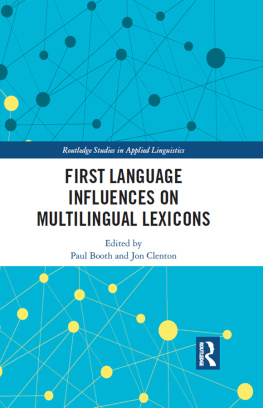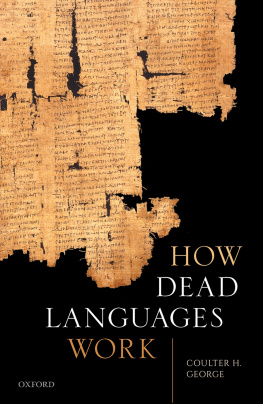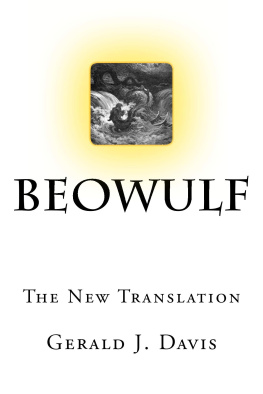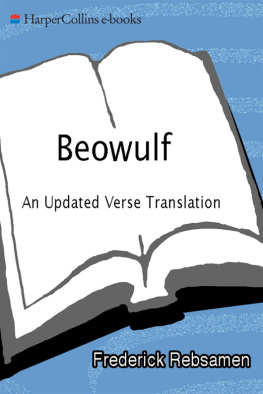Also by Jonathan Roper
CHARMS AND CHARMING IN EUROPE
CHARMS, CHARMERS AND CHARMING:
International Research on Verbal Magic
ENGLISH VERBAL CHARMS
Index
abecedarius poems
actors
adjective
adverb
Agnew, Spiro
alliteration
analogies of , Ch. 14 passim
and arbitrariness
archaic feel of
average rate of
avoidance of
awkwardness of
constraints on
culture-bound conventions of
density of
as expression of values
heavy use of
imprecision of
and lexical innovation
line-external passim
line length and
mnemonic use of
native terms for, Mongolian: bse qolbolta (joining the belts), tolgoi xolboc (head joint)
and parallelism
as part and parcel of writing poetry
and semantics
stylistic connotations of
and synonymy
and syntax
terms to describe it
and text-type
word choice motivated by
and word class
working definitions of
alliterative metonymy
alliterative name-giving
alliterative phrases, as repositories of obsolete words
Germanic cognates of
alliterative prose Introduction and Chs passim
alliterative restatement
alliterative verse Introduction and Chs passim
alliterative free verse
analogues of alliteration Ch. 14 passim
apposition
Arabic
asega (Frisian legal expert)
Augustine
Baesecke, Georg
bahuvrihi compounds
Baltic languages
Balto-Finnic , Ch. 12 passim
see also
beggar as field-name element
beings, supernatural
Beowulf
Bible, The
binomials see
Borchling, Conrad
brageyra (poetic ear)
breakback as field-name element
Buma, Wybren Jan
Buryat
Bush, George W.
csura
Chamisso, Adalbert
chiasmus
Chinese
Cicero
class, social
Clinton, Bill
, Ch. 9 passim
cochlear implants
cold as field-name element
compound words
consonant
consonant, absence of initial see
consonantal clusters
Danish
derogation
devil as field-name element
diphthong
direct speech
dithematic names Ch. 6 passim
drttkvtt
Dundes, Alan
Dutch
Dutch, Middle
echo words
Edda, The Elder
Edda, The Poetic
Efik
elocution
English Introduction and Chs
English, Middle
English, Old
epic
epitheton ornans
eponymy
equivalence set see
Estonian
etymology
European Society for Phraseology
Evenki
Field, John
filler words
finger fumblers
Finnic Ch. 12 passim
Finnish
Finno-Ugric
, Ch. 6 passim
folk etymology
formulaicity
fornyrislag
free verse
French
Frisian , Ch. 5 passim
Frisian, Old Ch. 5 passim
gaudy as field-name element
German
German, Middle High
German, Old High
Germanic
gnystudul
grammatical rhyme see
grapheme
see also
graphic alliteration see
Grimm, Jacob
Hlfdanarson, Helgi
Halliwell, James Orchard
, Ch. 14 passim
as counterparts of consonants
symbolism
Httatal, The
passim
Hebrew
Helgason, Jn
Heusler, Andreas
Heyne, Moritz
Hob
hovedstav see
homonymy
homophony
Hoops, Johannes
Hungarian
hungry as field-name element
hyperbole
Icelandic rmur poetry
Icelandic
idiom-final nouns
idioms
variability of
improvisation
inaugural addresses
Indo-European
inversion
irony
Italian
Izhor-Ingrian
Jackson, Andrew
Jefferson, Thomas
Johnson, Lyndon
Jorgensen, Marilyn
Kalevala, The , Ch. 12 passim
Kalevala-metre Ch. 12 passim
Kalmyk
Karelian
kenning
Kgel, Rudolf
labourers, agricultural
language learning
Latin
Latin rhetorical training as source of alliteration
, Ch. 5 passim
believed to have been metrical
oral delivery of
liminality
Lincoln, Abraham
literacy
litotes
little as field-name element
Livonian
ljahttr
Lnnrot, Elias
love as field-name element
Manchu
merism
metaphor
metonymy
Meyer, Richard
Mieder, Wolfgang
Minkova, Donka
Mongolian
morphology
see also
movement as counterpart of vowels
names
lists of
referential character of
rhetorical character of
see also
noa words
non-existent names Ch. 6 passim
noun
Obama, Barack
obscenity
Ob-Ugric
onomatopoeia
Opie, Iona and Peter
oral poetry
orality
Paczolay, Gyula
palatisation
parallelism see and
paronomasia
Persian
personification
persuasion
Pertunnen, Arhippa
Ptursson, Hallgrmur
phoneme
phonology
poems, placed in book according to their alliterative sound
pop lyrics
populism
preposition
pronoun
Presley, Elvis
pronunciation, native taxonomies of
message of
Puck
pudding as field-name element
pun
radio, alliteration overheard on the
Ray, John
Reagan, Ronald
Rebsamen, Frederick
reduplication
register
remoteness
rhetorical devices
avoidance of
right justification see
Roosevelt, Franklin
rotten as field-name element
Russian
sacrality
, Ch. 9 passim
Smi
Sanskrit
sarcasm
Saxon, Old
semantic field
semantics
Sepp, Rein
Seto
Shakespeare
shibboleth
Siebs, Theodore
Sievers, Eduard
sign language
linearity in
poetry Ch. 14 passim
see also
silver as field-name element
simile
skaldic verse Chs passim
Slavic
slurs
Somali , Ch. 13 passim
sound-patterning
sound repetition
see also
sound symbolism
see also
sound vs sense
sounds, alternation of
speech, alliteration in overheard
stress
initial syllable
Sturluson, Snorri
stylistics
Swedish , Ch. 6 passim
Szadrowsky, Manfred
taboo words
rymskvia, The Ch. 7 passim
Tibetan
titles
of books
of poems
translation, alliteration in
triads
Tungusic
Turkic
Turkic, Old
complementary twin f.s
contrastive twins f.s
unfixed metres
Uygur see
Vepsian
verb
Votic
vowel
Warburg Institute
Washington, George
wergeld
word class
see also
words
content
grammatical
Zwillingswrter see
1
Love, Silver and the Devil:
Alliteration in English Place-Names
Jeremy Harte
Abstract
The use of alliteration in place-names, especially the field-names coined by nineteenth-century farm workers, is one of many rhetorical structures employed in the creation of names. These confound ordinary models of place-name formation since they do not offer a literal description of their referents; instead, the alliterative names are often lengthy and cumbersome. The social role of these names extended beyond that of simply labelling their referents. They preserve for us the views of an otherwise unrepresented social class on the difficulties of working land and the value set on its productivity, coupled with the denigration of poor places, other communities and socially excluded outsiders. Comparison with other rhetorical practices, such as the transfer of foreign names to denote local places, shows that alliteration was a deliberate practice to mark out names which expressed values as well as facts.
Next page


